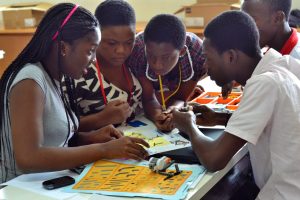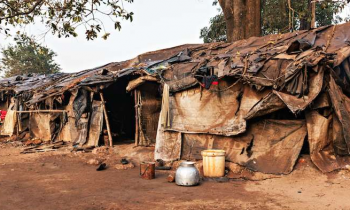3 April 2017 – Knowledge is at the centre of global development and an essential element for the achievement of Agenda 2030. Development organizations are increasingly recognizing the role of knowledge and learning to increase development impact and effectively contribute to the SDGs.
For IFAD, this means pursuing an agenda that focuses on innovation, sharing knowledge, and scaling up successes for expanded and sustainable impact.
Within this context, the Knowledge for Development: Global Partnership Conference will take place at the United Nations Palais des Nations in Geneva on 3-4 April, and IFAD will play a prominent role.
Organized by the Joint Inspection Unit (JIU) of the United Nations, the purpose of the conference is to review and advance knowledge management (KM) good practice in the field of sustainable development.
At the conference, the JIU will launch its 2016 Report on Knowledge Management in the United Nations system. IFAD’s KM strategy and KM work overall have been cited in the report as examples of leading practice.
The strategy was described as one of the most comprehensive and sustainable approaches to knowledge management in the UN system. The report commends IFAD for incorporating knowledge sharing in its daily work by making sharing of knowledge a component of its core value of professionalism and a required behavior of staff.
As part of the conference, IFAD’s KM work will be presented in a session highlighting good practice in several UN organizations.
The conference will also present the Agenda Knowledge for Development, including a set of Knowledge for Development Goals that are intended to complement and support the implementation of Agenda 2030 and the Sustainable Development Goals (SDGs).
The Agenda Knowledge for Development has been prepared by an international coalition of civil society organizations, enterprises and academics, and represents a common vision of how knowledge can contribute to and underpin the ambitions of the SDGs.
Leading development practitioners and thinkers have put forward statements in which they express their personal views and perspectives on knowledge.
Michel Mordasini, Vice-President of IFAD, shared his view on knowledge: “To contribute effectively to the SDGs, IFAD is committed to increase the impact of our rural development investments through innovation, learning, and scaling up successes.
This commitment is reflected in our Knowledge Management Strategy and Grant Policy for which the generation and sharing of knowledge for development impact is a key objective.”
Mordasini continued: “Knowledge is indeed at the heart of IFAD’s business model. We need to continuously enrich – from experiences and lessons learned across the world – the policy dialogue with our member countries and the design of our operations.”
Finally, the conference will launch the Knowledge for Development Partnership as an independent, non-profit, multi-stakeholder platform.
Retrieved from https://www.ifad.org/stories/tags/41997921


